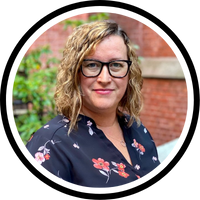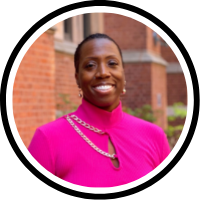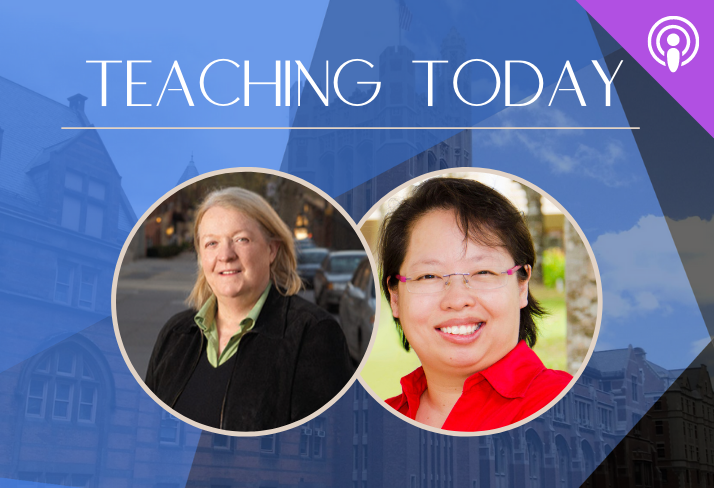|
6/7/2022 Lessons from the Field: Practice and Professional Learning with the Global Mindset Framework
Making a 21st century skills framework meaningful for K-12 instruction.
Over the past century, advanced technology has made the world smaller and smaller. This has perhaps never been truer than the past decade, in which social media has made it possible for a tweet or an Instagram post to be seen around the world in mere seconds. Consequently, we see and have many more collective experiences. This was perhaps never more evident than over the past few years with the shared experience of a global pandemic and a rapid impact on learning in most parts of the world.
As we were thrust into new ways of thinking about teaching and learning, different mindsets, and different ways of imagining schools, we were faced with the truth that we can no longer sustain a 20th century in a 21st century world. The task before us is to educate students today for the world they’re poised to lead tomorrow. As a founding organization of the Global Learning Alliance (GLA), we have been thinking about reimagining education and preparing educators for the future for quite some time. The GLA is the outgrowth of our groundbreaking research in five of the top PISA-ranked cities around the world on the features and practices surrounding 21st century teaching and learning, and is committed to cross-cultural research collaborations as an effort to define a pedagogy that takes into account the dynamic needs of our changing world. Through this work, we are dedicated to understanding, defining, applying, and sharing the principles and practices of a world-class education within a wide range of educational contexts.
Essential mindsets
As part of research and collaborations with K-12 schools and university partners around the world, we have developed the Global Mindset Framework, which identifies five mindsets that have emerged as most relevant to the future success of today’s students. Each mindset includes four key skills that demonstrate the actions that can be seen when cultivating the mindset. But just having access to a framework doesn’t mean it’s automatically linked to classroom practices — and some of these mindsets haven’t been typically taught in schools. As a result, we always consider how we can help educators to analyze, apply, and adjust learning frameworks as they incorporate them into their everyday teaching practices.
Putting the framework into practice
The challenge with any educational framework is translating it into meaningful practice for the teachers and students it's intended to serve. We were privileged to partner with the Brunswick School to integrate 21st century practices into a wide range of courses across all grade levels. We customized our professional learning approach to maximize the time we had together so teachers could have meaningful conversations, practical applications, and space to reflect on their experiences for deeper learning. We used a blended approach to professional development that included customized, professional learning videos and synchronous 75-minute sessions to explore the meanings of each component and practical application for classroom practices.
Metacognitive reflection
As we worked across department teams, we wanted to model the mindsets of the framework, so with each new mindset that we studied, we created a customized video with the basic facts, and then planned for an interactive face-to-face session where teachers developed practical strategies after watching the video and discussed the impact of the framework on their classes. Some teachers noticed that incorporating a new mindset each month allowed them to expand their learning outcomes beyond simply “critical thinking skills” and that they were setting critical goals for collaboration through group work and discussion, as well as creativity where they used imaginative writing prompts to help students expand their thinking. This kind of integrated thinking helped the teachers test and tweak their learning strategies immediately. By creating heterogeneous groups in these sessions, we were also able to support cross-grade professional learning conversations that generated great ideas from different vantage points. Teachers from the upper grades were amazed at the different planning and pedagogical moves made by the teachers in the lower grades. Similarly, the teachers in the lower grades benefited from learning more about student expectations in the upper grades. These realizations created space for metacognitive reflection about their practice, and challenged some of the assumptions we all have when thinking about planning for our specific grade/content area. Like working with students, we know that placing adults in strategic and flexible groupings is a powerful lever for keeping learning fresh. During the culminating session about their learning, each teacher was given an opportunity to share a lesson, unit, or project they implemented or planned to implement by applying a single or multiple mindset from the framework. Their learning was evident through their sharing and evidenced in the artifacts from their student work. In one case, a teacher hoped to have students investigate COVID-19 using actual numbers and data to unpack the pandemic. After interpreting the data, they would design charts and graphs to share their findings, make predictions for the long-term impacts of COVID-19, and offer recommendations for next steps. Throughout the project, students would implicitly be asked to demonstrate the Global mindset from our framework, as they strove to solve real-world problems.
Lessons learned
When educators consider the implications of the Global Mindset Framework within their own curriculum, we’ve seen how they cultivate their own mindsets, in addition to making direct connections to new teaching practices. Our partners demonstrated that when we scratch the surface of 21st century skills, we see that there are not only many innovative practices, but many unanswered questions. Some of our big learning moments and new questions included the following:
In education, we often encounter frameworks — whether it’s a framework for literacy, a framework for evaluation, or a framework for instruction — that should translate into practice. This translation can be achieved through thoughtful and intentional professional development that respects the knowledge of teachers and honors the ways adults learn. By structuring these professional learning sessions in both synchronous and asynchronous engagements, and using cross-content and grade-level groupings, teachers were able to interpret this essential framework in meaningful ways.
Wondering what this work could look like in your community? Reach out to us to discuss how you can bring essential 21st century skills to your students and community. |
|
The Center for Professional Education of Teachers (CPET) at Teachers College, Columbia University is committed to making excellent and equitable education accessible worldwide. CPET unites theory and practice to promote transformational change. We design innovative projects, cultivate sustainable partnerships, and conduct research through direct and online services to youth and educators. Grounded in adult learning theories, our six core principles structure our customized approach and expand the capacities of educators around the world.
|
ABOUT US
525 West 120th Street, Box 182 New York, NY 10027 416 Zankel Ph: (212) 678-3161 [email protected] Our Team Career Opportunities |
RESOURCES
Professional Articles Ready-to-Use Resources Teaching Today Podcast Upcoming PD Opportunities |
COACHING SERVICES
Custom Coaching Global Learning Alliance Literacy Unbound New Teacher Network Student Press Initiative |




























